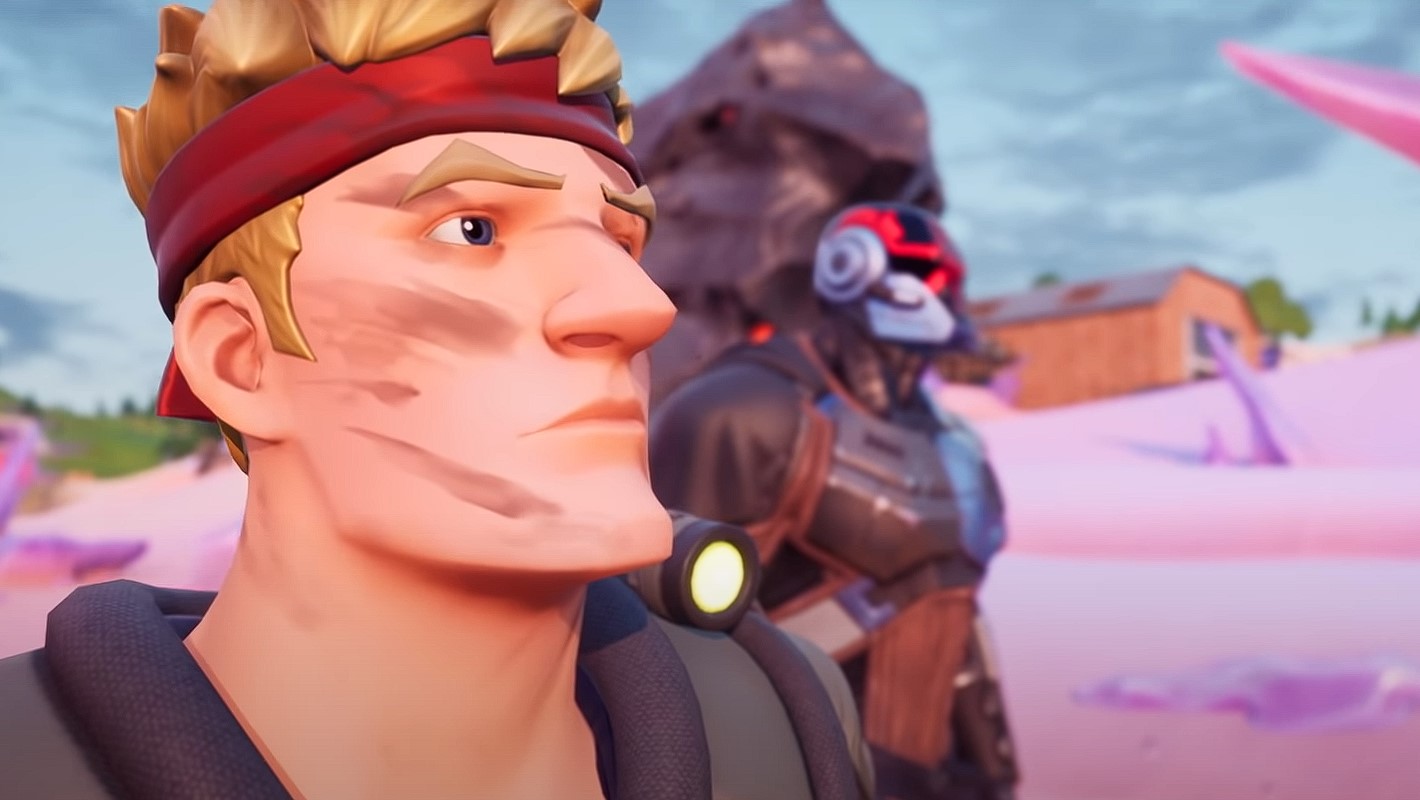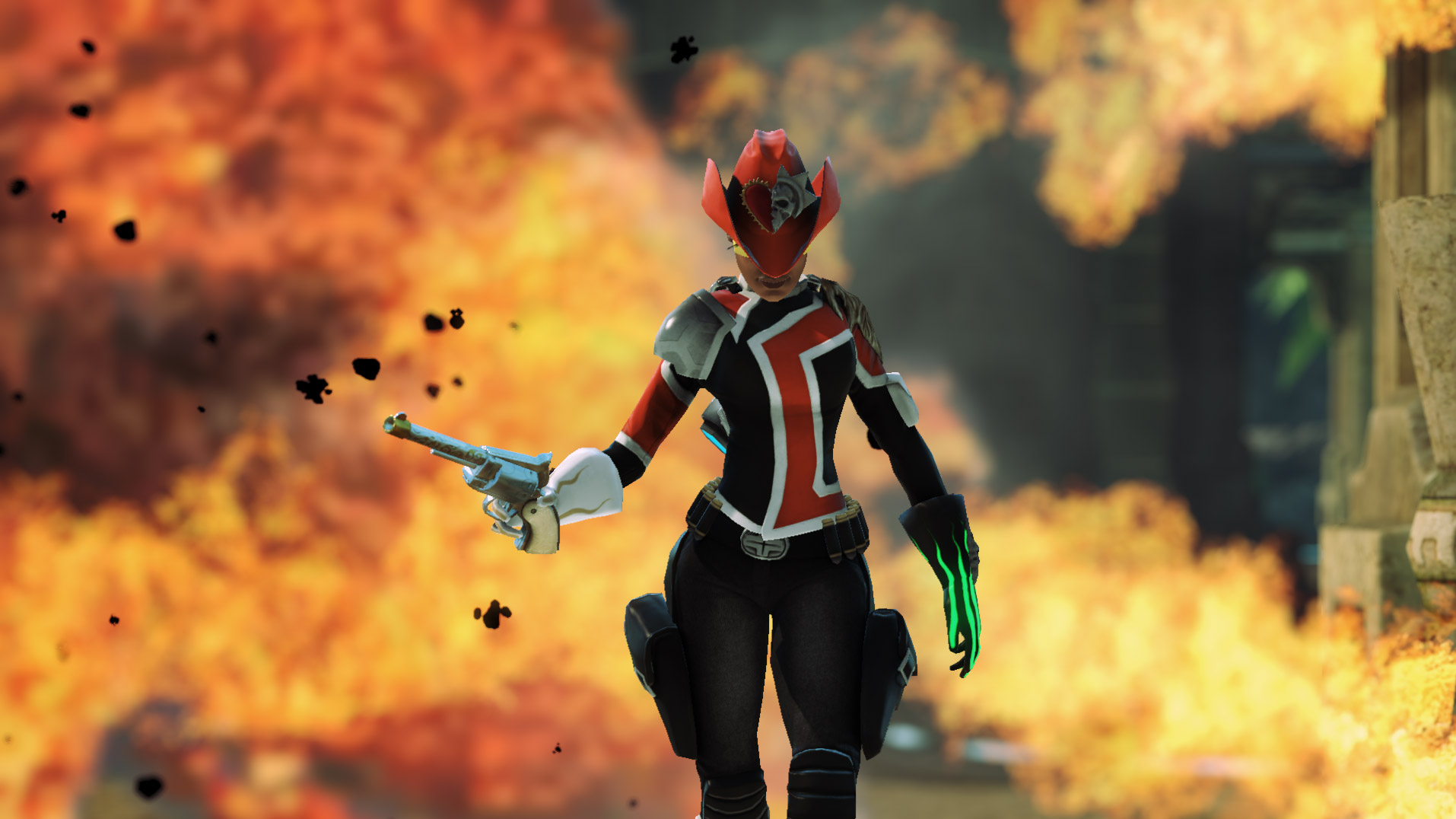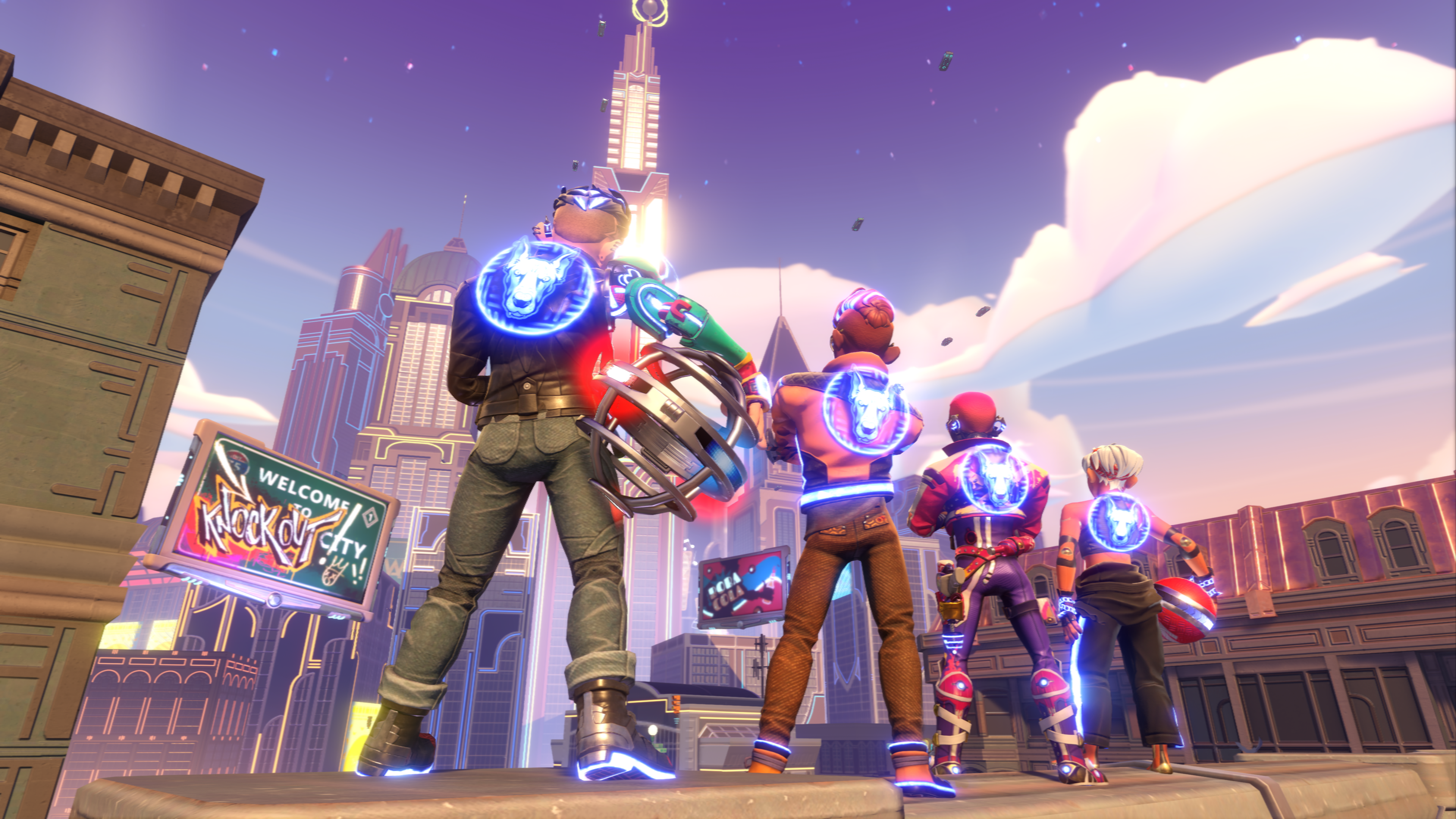Why haven't we moved on from battle royale?
Five years after Fortnite, nothing has managed to usurp the mass deathmatch.

Are you sick of parachuting onto an island yet?
As the site's resident Apex obsessive I have to immediately undermine myself by saying, no, actually. But it does feel like we've been asking "Where we droppin?" for a long time now. With PUBG going free-to-play, rumours spreading about a sequel to Warzone, and Fortnite set to celebrate its fifth birthday this summer, even I'm starting to wonder how long games will be obsessed with hundred-player deathmatches.
With the genre's biggest players showing no sign of slowdown, how long can we expect the battle royale to continue—and why hasn't anything come to knock the chicken dinner out of its hands?
History lesson
Trends come and go, and multiplayer games are no exception. When I was wee it was MMOs, with countless studios firing up to try and take World of Warcraft's throne. While none overthrew it completely (until, arguably, Final Fantasy 14), some managed to find a niche through brand power (The Elder Scrolls Online, Star Wars: The Old Republic) or by dramatically skewing into something entirely their own (EVE Online).
In the early 2010s, MMOs gave way to MOBAs, with League of Legends and Dota 2 quickly establishing themselves as the top dogs in their field. Like its forebear, MOBAs had their fair share of developers hopping the bandwagon, but it feels far fewer found success from it. Smite is still going, somehow, but who remembers games like Paragon, Super Monday Night Combat, Strife, Gigantic?

MOBAs consolidated hard around two titles so quickly that there was never really space for others to claw out a spot. If you liked the genre, you were probably already playing League or Dota—games that require such a heavy commitment that they leave little time for toe-dipping in their rivals.
Which takes us to battle Royale. While the concept of a free-for-all murder island has been around for decades, the current iteration has its roots in Brendan "PlayerUnknown" Greene''s ARMA 2 mods—mods that would eventually be formalised as PlayerUnknown's Battlegrounds. Then Epic would nick the format, attach it to a then-floundering wee game called Fortnite, and end up with the kind of culture-defining hit usually reserved for a Star Wars and Marvel.
Keep up to date with the most important stories and the best deals, as picked by the PC Gamer team.
The battle royale format proved malleable enough that, even years into the trend, new contenders were still finding breakout success. While Blackout never quite found traction, Call of Duty's second stab at a BR, Warzone, rapidly overshadowed even the mainline series. And despite being a battle royale spin-off to a cult FPS franchise dropped without warning in February 2019, Apex Legends has firmly established itself as not only one of the strongest competitors in the genre, but maybe the best online shooter you can play today.
Holding pattern
But it's been a few years since the last major player entered the BR space, leaving us to wonder: what's next?
For a minute it looked like it might be autobattlers. Beginning with Dota 2 mod Auto Chess in 2019, the passive strategy puzzlers seemed poised to explode. Both League and Dota came out with their own official autobattlers, and Auto Chess transitioned from mod to full standalone game.
But while Teamfight Tactics is still in rude health, autobattlers as a whole are flailing. Resident TFT nut Fraser reckons this is because they're ultimately not very social experiences, played against strangers but never with friends.
"In MMOs, MOBAs and battle royales, you're in teams and squads and parties," Fraser wrote. "Forced to work together, you can make new relationships, or turn it into a regular playdate with buds. Now, I play TFT quite a bit with a group, but we're playing separately and against one another, not as part of a team. And there's no reason to be in a group with players I don't already know."
Of course, it can't be ignored that creating games in a pandemic has been extremely difficult. With studios shifting to remote work and new titles constantly facing delays, the games industry hasn't been able to capitalise on new hits as quickly as it may have previously been able. But part of why nothing has topped battle royale has to also come from the fact the genre itself has yet to really run out of steam.

Fortnite has taken a hard pivot into a cross-promotional entertainment platform, Warzone gets a hard refresh with every new Call of Duty release, and Apex regularly updates with new maps, characters, and new modes. The constant pressure to keep up with battle passes (which the genre largely brought into popularity) also subtly prevents you from taking breaks. MMOs often go half a year or longer between major updates—Final Fantasy 14 in particular was designed with the expectation that players will regularly go off to do other things, returning when there's a new story to experience months later.
The only one that's really feeling tired in 2022 is PUBG, which while still wildly popular on mobile and in Asia, has otherwise retreated from the limelight.
Even so, the battle royale space doesn't quite feel calcified in such a way that a new contender couldn't slip in to grab a slice of the audience—and as long as that possibility exists, developers will still be gunning to claim it.
Team effort
We may not have had a single, unifying genre defining the pandemic years, but it hasn't been shy of stand-out hits. But while Among Us (arguably the biggest game of 2020) had its fair share of clones, it didn't outright spawn an entire genre of successful imitators—nor did other surprise break-outs Phasmophobia or Valheim.
Here's the thing, though: if you look back at Among Us, at Phasmophobia, at Valheim and Gartic Phone and the Jackbox games your friends are pulling out of storage to get the gang back together, we clearly need games that let us simply hang out with people we haven't seen in months.
It's for that same reason that old trends are finding new life under lockdown. While I'm going back to Halo 3 with new friends or putting more hours into Apex than is humanly reasonable, my partner (and half the PC Gamer office, from the sounds of it) returned to Guild Wars 2. When my Discord buds aren't spinning up old Minecraft servers they're diving back into Dead by Daylight, Vermintide 2 or Sea of Thieves.
If there's one thing that unified previous all-encompassing genres, it's that they all gave you space to hang out with your pals—whether that's hot-dropping Fortnite's Tomato Town, pushing Roshan in Dota, or spending a weekend grinding out the latest Final Fantasy 14 raid.
If a new genre is to usurp battle royale, it'll need to play perfectly into this desire for socialisation. But if a haphazard array of breakout lockdown hits has taught us anything, maybe it's that we've moved on from the need for 5 different flavours of the same game.

See, without a bandwagon to chase, multiplayer developers are free to express themselves in entirely new ways. While there have still been attempts to shoehorn BR into new and existing games, the breakout hits of the last year have had far more room to exist outside that mould—even within just multiplayer shooters
Splitgate was Halo by way of Portal, shortly followed by a new (and surprisingly good) Halo game in Halo Infinite. Knockout City found a solid audience through competitive dodgeball, and while Hunt Showdown shares a lot of similarities with battle royale, its olde timey PvPvE monster huntin' has carved out a genre all of its own.
I'm sure that, before long, something new and massive will come along to suck all the air out of the room once more. But the scene is ultimately healthier when all the big players aren't racing to make the next PUBG, or Dota, or World of Warcraft. At this point, even the remaining big battle royale games feel like they offer something fundamentally unique to each other, whether that's fun characters, music concerts, or, uh, constant invisibility bugs.
Something will, eventually, usurp battle royale—but I'm more than happy for it to take its sweet time getting here.

20 years ago, Nat played Jet Set Radio Future for the first time, and she's not stopped thinking about games since. Joining PC Gamer in 2020, she comes from three years of freelance reporting at Rock Paper Shotgun, Waypoint, VG247 and more. Embedded in the European indie scene and a part-time game developer herself, Nat is always looking for a new curiosity to scream about—whether it's the next best indie darling, or simply someone modding a Scotmid into Black Mesa. She also unofficially appears in Apex Legends under the pseudonym Horizon.

